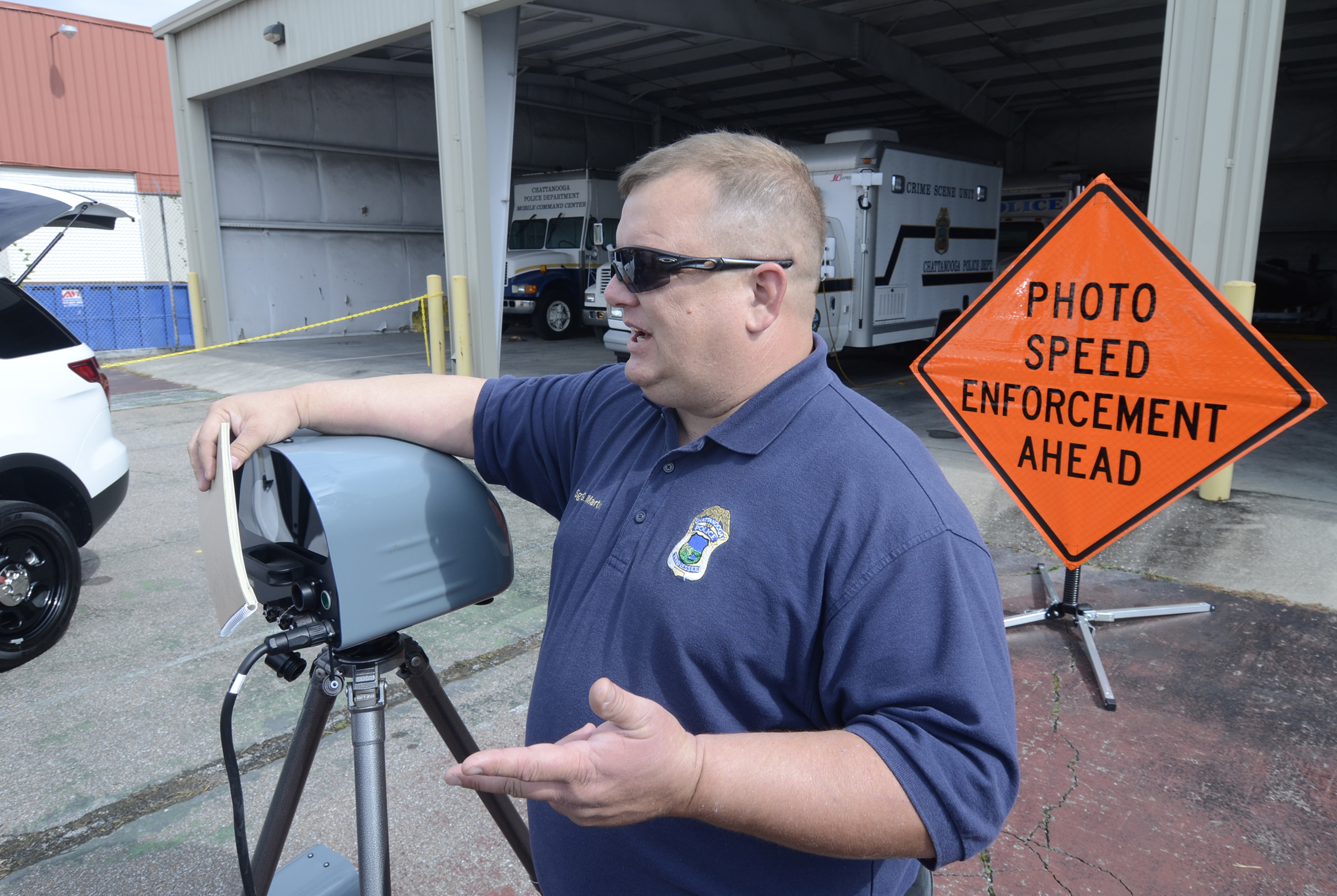BY THE NUMBERSChattanooga camera tickets• 42,336 traffic camera citations issued in 2009• 44,235 traffic camera citations issued in 2010• 17,122 traffic camera citations issued in 2011• 5,259 traffic camera citations issued in 2012 through May The city's began having issues with the previous company's equipment in 2011, which resulted in a decreased number of citations. The program was stopped in May until an agreement was reached with Synsus.Source: Chattanooga Police DepartmentCONTRACT DETAILS• Four mobile speed cameras, including two tripod mounts and four vehicle mounts• Three fixed pole mounts for speed cameras• Four redlight cameras with the capability to also cite speeding tickets on green• The city will lease the equipment and the company will provide any needed maintenance. Up to 40 camera systems can be installed, according to the contract.Source: Chattanooga Police DepartmentCONTRACT COSTSFor the types of cameras outlined in the agreement, the city will pay $16,800 per month to lease the system.The company charges:• $1,400 per month for a mobile system• $1,600 per month for a fixed systemSource: Chattanooga Police DepartmentWHERE DOES THE MONEY GO?Each ticket will cost motorists $50. Out of that $50, Synsus will get $7 as a processing fee and additional $14 if the citation is paid, so the company could keep $21, or 42 percent, of the revenue from paid tickets. Darlene Hinds, program manager for Synsus, said on average between 70 to 80 percent of tickets are paid by motorists.The remaining $29 of paid tickets goes to the city. The funds are earmarked to fund the drivers education program and traffic enforcement at the police department.
Four Chattanooga police vehicles soon will be installed with smaller compact cameras that officers can place discreetly on tripods to catch speeding motorists.
"We can set the cameras up in places where we couldn't before, where we have a documented speeding problem," said John Van Winkle, city traffic engineer. "We can mount them on a tripod and put them in places where there was no place to park a van."
The Chattanooga City Council unanimously passed a resolution in April that allows for a new three-year camera contract with Miami-based Sensys America, Inc.
Traffic Sgt. Gary Martin said two mobile cameras in police sport utility vehicles will be rolled out Monday. The SUVs replace four vans the city has used for speed enforcement.
Officers will be posting signs reading "Photo Speed Enforcement Ahead" to warn drivers to slow down.
The new camera system uses Doppler radar to calculate speed.
"Our entire wish behind this is to modify driving behavior for the safety of the city," Chattanooga Police Chief Bobby Dodd said Thursday at a news conference.
There will still be 11 camera systems in the city, according to the agreement. However, the number of fixed sites may decrease, Martin said.
Speed cameras will stay on Hixson Pike, Barton Avenue and St. Elmo Avenue, he said, but there has been discussion about taking down stationary cameras at Crest Road and Pinewood Road, where camera tickets "decreased the number of citations."
Officers are responsible for reviewing all the citations issued by the cameras before drivers receive the bill in the mail. Citations are issued to drivers traveling more than 10 mph above the posted speed limit, Martin said, but the citations do not count against driving records.
Van Winkle said the cameras are placed in areas where there is a higher number of collisions.
He credited the cameras for a drop in crashes along the S curves on Hixson Pike. In 2001, there were 100 collisions documented on the winding stretch of road. Even when the road was repaved, speed continued to be a problem.
Since the city installed cameras in 2007, traffic collisions have been dropping and, in 2011, there were only two crashes, he said.
"People have learned they need to slow down," he said. "We've made the streets safer."The city is responsible for paying Sensys if there is a shortfall in revenue below the $16,800 monthly cost, according to the contract. Martin described the system as "revenue neutral."
"We're at least going to get back to where we were," he said.
The contract allows the city to make up the difference by making payments at a later date if revenues are higher in other months.

